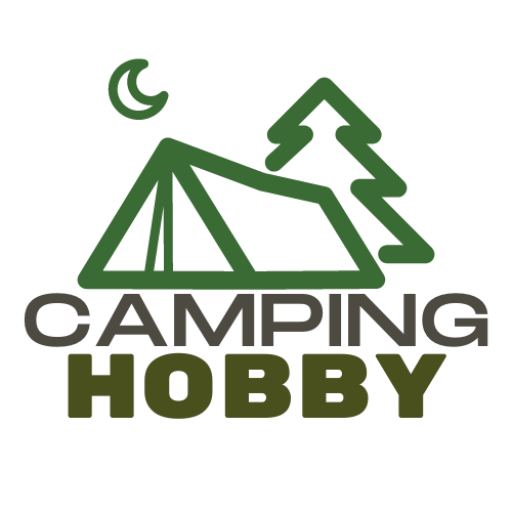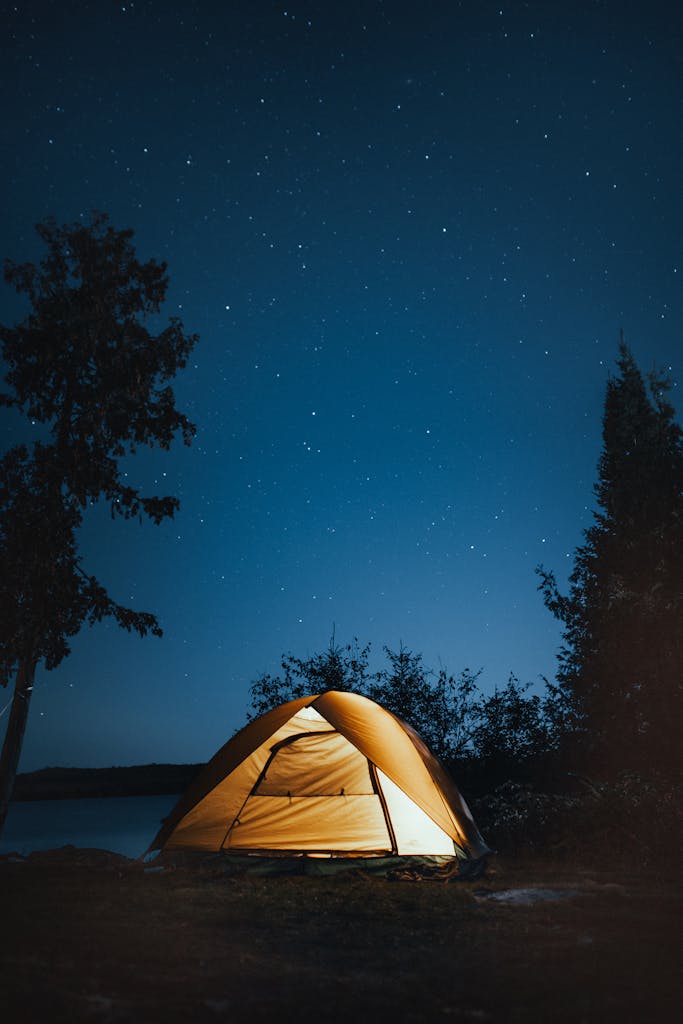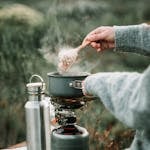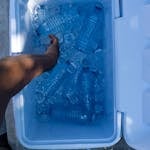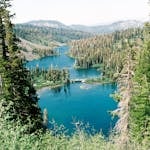Camping is a popular activity that allows people to escape the hustle and bustle of everyday life and immerse themselves in the beauty of nature. Whether you are an experienced camper or a novice, there are numerous benefits to spending time in the great outdoors. Camping provides an opportunity to disconnect from technology, reconnect with loved ones, and rejuvenate both the mind and body.
One of the main appeals of camping is the chance to unplug from technology and enjoy a break from the constant distractions of modern life. In today’s digital age, it can be difficult to find a moment of peace and quiet. Camping allows you to leave behind your phone, computer, and other electronic devices, and instead focus on the natural world around you. This break from technology can help reduce stress levels and improve mental well-being.
In addition to the mental benefits, camping also offers numerous physical advantages. Spending time outdoors exposes you to fresh air and natural sunlight, which can boost your mood and increase your vitamin D levels. Camping also provides an opportunity for physical activity, whether it’s hiking, swimming, or simply setting up camp. These activities can help improve cardiovascular health, build strength, and increase overall fitness levels.
Factors to Consider When Choosing a Camping Spot
When planning a camping trip, it’s important to consider several factors in order to choose the perfect camping spot. The location of your campsite will greatly impact your overall experience, so it’s important to choose wisely.
One of the first factors to consider is the location of the campsite. Do you prefer a remote wilderness experience or do you want to be close to amenities? Some people enjoy being completely off the grid, while others prefer having access to showers, toilets, and other facilities. Consider what type of experience you are looking for and choose a location accordingly.
Accessibility is another important factor to consider when choosing a camping spot. If you have young children or individuals with mobility issues in your group, you may want to choose a campsite that is easily accessible. Look for campsites that have paved roads, level ground, and nearby parking.
Weather is another crucial factor to consider when choosing a camping spot. Different regions of the country experience different weather patterns, so it’s important to research the climate of your desired camping location. Be prepared for potential rain, wind, or extreme temperatures by packing appropriate clothing and gear.
Top 10 Camping Spots in the US
The United States is home to some of the most breathtaking camping spots in the world. From towering mountains to pristine lakes, there is something for everyone to enjoy. Here are ten of the top camping spots in the US:
1. Yosemite National Park: Located in California, Yosemite National Park is known for its stunning granite cliffs, waterfalls, and giant sequoia groves. The park offers numerous campgrounds, ranging from primitive sites to those with more amenities.
2. Grand Canyon National Park: The Grand Canyon is one of the most iconic natural wonders in the world. Camping at the Grand Canyon allows you to experience the awe-inspiring beauty of the canyon up close and personal.
3. Yellowstone National Park: Yellowstone is America’s first national park and is famous for its geothermal features, including Old Faithful geyser. The park offers a variety of campgrounds, ranging from rustic to modern.
4. Acadia National Park: Located on the coast of Maine, Acadia National Park offers stunning views of rocky shorelines and lush forests. The park has several campgrounds that provide easy access to hiking trails and scenic overlooks.
5. Zion National Park: Zion National Park in Utah is known for its towering red cliffs and narrow slot canyons. The park offers several campgrounds that allow visitors to immerse themselves in the unique desert landscape.
6. Great Smoky Mountains National Park: Located on the border of Tennessee and North Carolina, the Great Smoky Mountains National Park is known for its diverse plant and animal life. The park offers numerous campgrounds, many of which are open year-round.
7. Joshua Tree National Park: Joshua Tree National Park in California is famous for its unique Joshua trees and rock formations. The park offers several campgrounds that provide easy access to hiking trails and rock climbing routes.
8. Glacier National Park: Located in Montana, Glacier National Park is known for its stunning alpine scenery and pristine lakes. The park offers several campgrounds that allow visitors to experience the beauty of the park up close.
9. Olympic National Park: Olympic National Park in Washington state offers a diverse range of ecosystems, including rainforests, mountains, and coastal areas. The park has several campgrounds that provide easy access to hiking trails and scenic drives.
10. Arches National Park: Arches National Park in Utah is famous for its natural sandstone arches and rock formations. The park offers several campgrounds that allow visitors to explore the unique desert landscape.
How to Plan Your Camping Trip: Tips and Tricks
Planning a camping trip can be overwhelming, especially if you are new to camping. However, with a little bit of research and preparation, you can ensure that your trip goes smoothly. Here are some tips and tricks to help you plan your camping trip:
1. Research your destination: Before heading out on your camping trip, take the time to research your destination. Look for information about the campground, including amenities, rules, and regulations. Familiarize yourself with the local area and any nearby attractions or activities.
2. Make a packing list: Creating a packing list is essential to ensure that you don’t forget any important items. Start by making a list of the essentials, such as a tent, sleeping bag, and cooking equipment. Then, add any additional items that you may need, such as clothing, toiletries, and entertainment.
3. Plan your meals: Planning your meals in advance can help save time and ensure that you have enough food for your trip. Consider the length of your stay and the number of people in your group when planning your meals. Make a list of the ingredients you will need and pack them accordingly.
4. Reserve your campsite in advance: Many popular campgrounds fill up quickly, especially during peak season. To ensure that you have a spot, it’s important to reserve your campsite in advance. Check the reservation policies for your chosen campground and make your reservation as early as possible.
The Best Camping Gear: What to Pack for Your Trip
Having the right gear can make or break your camping trip. Here are some essential items to pack for your camping adventure:
1. Tent: A good quality tent is essential for a comfortable camping experience. Look for a tent that is easy to set up, durable, and weather-resistant.
2. Sleeping bag: A warm and comfortable sleeping bag is crucial for a good night’s sleep. Choose a sleeping bag that is appropriate for the weather conditions you will be camping in.
3. Camping stove: A camping stove allows you to cook meals and boil water while camping. Look for a stove that is lightweight, compact, and easy to use.
4. Cooler: A cooler is essential for keeping food and drinks cold while camping. Look for a cooler that is large enough to hold all of your perishable items and has good insulation.
5. Headlamp: A headlamp is a convenient hands-free lighting option for camping. Look for a headlamp that is lightweight, has adjustable brightness settings, and has a long battery life.
6. First aid kit: A first aid kit is essential for treating minor injuries and illnesses while camping. Look for a kit that includes bandages, antiseptic wipes, pain relievers, and other basic medical supplies.
Camping with Kids: How to Make it a Fun and Safe Experience

Camping with kids can be a fun and memorable experience for the whole family. However, it’s important to take extra precautions to ensure their safety and enjoyment. Here are some tips for camping with kids:
1. Choose a family-friendly campsite: When choosing a campsite, look for one that is family-friendly and offers amenities such as playgrounds, swimming areas, and nature trails. Consider the proximity to bathrooms and other facilities that may be important for young children.
2. Pack plenty of snacks and activities: Keeping kids entertained while camping is essential. Pack plenty of snacks and easy-to-prepare meals to keep hunger at bay. Bring along games, toys, and other activities to keep kids occupied during downtime.
3. Teach your kids about camping safety: Before heading out on your camping trip, take the time to teach your kids about camping safety. Show them how to set up a tent, build a fire safely, and identify potential hazards in the campground. Encourage them to ask questions and be aware of their surroundings.
Camping on a Budget: How to Save Money on Your Trip
Camping is a great way to enjoy the outdoors without breaking the bank. Here are some tips for camping on a budget:
1. Choose a free or low-cost campsite: Many national forests and Bureau of Land Management (BLM) areas offer free or low-cost camping options. These sites often have fewer amenities but can provide a more secluded and peaceful experience.
2. Bring your own food and drinks: Eating out while camping can quickly add up, so it’s best to bring your own food and drinks. Plan your meals in advance and pack non-perishable items that are easy to prepare.
3. Rent or borrow gear instead of buying it: Camping gear can be expensive, especially if you are just starting out. Consider renting or borrowing gear instead of buying it. Many outdoor stores and online platforms offer gear rental services at a fraction of the cost of buying new equipment.
Camping Safety: How to Stay Safe in the Great Outdoors
While camping is generally a safe activity, it’s important to take precautions to ensure your safety. Here are some tips for staying safe while camping:
1. Know the weather forecast: Before heading out on your camping trip, check the weather forecast for your destination. Be prepared for potential rain, wind, or extreme temperatures by packing appropriate clothing and gear.
2. Follow fire safety guidelines: If you plan on having a campfire, it’s important to follow fire safety guidelines. Make sure to use designated fire rings or pits and never leave a fire unattended. Always fully extinguish your fire before leaving your campsite.
3. Be aware of wildlife in the area: When camping in areas with wildlife, it’s important to be aware of their presence and take precautions to avoid encounters. Store food securely and dispose of trash properly to avoid attracting animals to your campsite.
Camping Etiquette: How to Be a Responsible Camper
Being a responsible camper is essential for preserving the natural beauty of our camping spots and ensuring that future generations can enjoy them as well. Here are some tips for practicing good camping etiquette:
1. Leave no trace: When camping, it’s important to leave no trace behind. Pack out all trash and dispose of it properly. Avoid damaging vegetation and wildlife by staying on designated trails and campsites.
2. Respect quiet hours: Many campgrounds have designated quiet hours during which noise should be kept to a minimum. Respect these quiet hours and be considerate of other campers.
3. Follow campground rules: Each campground has its own set of rules and regulations. Familiarize yourself with these rules and follow them to ensure a positive camping experience for everyone.
Get Ready to Discover Your Perfect Camping Spot!
Camping is a wonderful way to escape the stresses of everyday life and reconnect with nature. Whether you are an experienced camper or a novice, there are numerous benefits to spending time in the great outdoors. From the stunning landscapes of national parks to the tranquility of remote wilderness areas, there is a perfect camping spot waiting for you. So, start planning your next camping trip and get ready to create memories that will last a lifetime.
FAQs
Camping is an outdoor recreational activity where people spend time in nature, usually in a tent or RV, away from their homes and cities.
Camping provides an opportunity to disconnect from technology and connect with nature. It can also improve mental health, physical fitness, and social skills.
You can find camping sites near you by searching online, using camping apps, or contacting your local parks and recreation department.
There are various types of camping sites available, including tent camping, RV camping, car camping, backpacking, and glamping.
Amenities at camping sites vary, but may include picnic tables, fire pits, restrooms, showers, electricity, water, and Wi-Fi.
You should bring a tent or RV, sleeping bags, camping chairs, cooking equipment, food, water, and appropriate clothing and footwear for the weather.
Some safety tips for camping include checking the weather forecast, bringing a first aid kit, staying hydrated, keeping a safe distance from wildlife, and properly storing food to avoid attracting animals.
